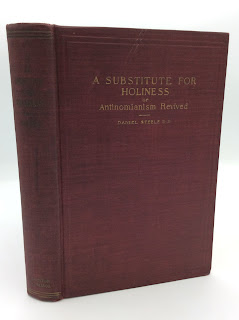You retain him by faith and not by feeling. The highest Christian experience is subject to variations. Joy, like the tide, ebbs and flows. There are times when the soul, without effort, apprehends the love of God, and joy unspeakable fills, floods, and overwhelms it. Suddenly this bright manifestation is withdrawn, while no testimony of the Spirit is left behind against any act of ours as the cause. While there is no cloud nor doubt, there is no direct assurance. All is a waveless, breathless calm. Then is the time to walk by the lamp of faith, since the sunlight of the direct and joyful witness of God's love is withdrawn. Beware lest you admit the thought that the fullness of God has left you with the cessation of the exultant joy of the Holy Spirit. These alternations of feeling are doubtless regulated by hidden but benevolent laws. They may be requisite for the development of higher faith, when the soul, humbled and hungering, cries out,
My flesh lies panting, Lord, for thee."
These inexplicable vacations of the manifestation of Divine love may be necessary for the more deliberate examination of our hearts. It is said that in the early days of railroading the careful engineer would occasionally stop his train in order to tap the wheels and test their soundness and safety. So God may at times interrupt the current of conscious love, to afford us an appropriate occasion for spiritual introspection. The man who walks by faith through these intervals will soon find even a clearer and more joyful out-beaming of the Saviour's countenance to reward his faithful clinging to the Divine promise.

.jpg)
.png)

.png)
.png)
.png)


.png)
.png)

.png)


.png)
.png)
.png)

.jpg)
.png)
.png)





.png)